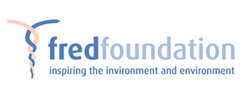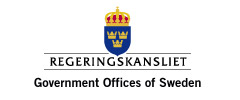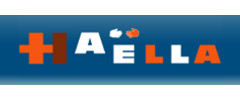Improving school sanitation in a sustainable way - WECF publishes article in Science Direct
Article by Margriet Samwel and Sascha Gabizon, WECF
02.10.2009 |Margriet Samwel and Sascha Gabizon
Abstract
In the World Health Organisation (WHO) European Region, 120 million people do not have access to safe drinking water, and even more lack access to hygienic sanitary facilities. Better management of water and sanitation would prevent over 30 million cases of water-related disease per year in the region. Fewdata are collected or known about the access to adequate water supply and safe sanitation for public institutions such as schools. Since the independency in former Soviet states like Ukraine, Moldova, Armenia and others, existing central water and sewage systems are often badly maintained and no longer functioning. Women in Europe for a Common Future (WECF) gained experience on issues of water and sanitation in the rural areas of the new assessed EU countries Romania and Bulgaria and in 10 EECCA countries. WECF observed in the rural areas of those countries the most worse conditions of school sanitation: Groundwater is polluted by infiltration of nitrates and micro organism. Visiting the latrine is a threat to children’s health. The toilets are far away from the school, do not give privacy and are unhygienic. As much as possible, children and school staff try to avoid a visit of the facility by a low intake of liquids. During the period of menstruation girls prefer to stay at home. In demonstration projects, WECF has improved the sanitary condition of the schools and shown how to manage human excreta in an affordable, safe and sustainable way. It was shown, that even without a connection to the central water or sewage system, the dry urine-diverting toilet is a very fast and easy tool to improving the sanitary conditions of schools in an affordable and sustainable way, and to protect groundwater against infiltration of human excreta. School sanitation is an issue that needs the attention of regional, national and international policy makers. In order to improve the sanitary conditions in schools, regulations on the adoption of urine-diversion systems and the reuse of the human excreta in agriculture are needed.
Keywords: Sustainable school sanitation; Pit latrine; Urine-diverting toilet
Related News
Inauguration of the first constructed wetland in Bulgaria
April 29, the constructed wetland for the wastewater treatment of the Home for Children and Juveniles with Mental Retardation St. Panteleimon in Vidrare, Pravetz municipality, was inaugurated
08.06.2011 | Claudia Wendland & Bistra Mihaylova
Constructed Wetlands - Sustainable and Cost-Effective Wastewater Treatment in Rural and Peri-Urban Areas Bulgaria
A national conference presenting constructed wetlands as a sustainable and cost-effective wastewater treatment system was held on 29th of April 2011 in Grand Hotel Sofia
08.05.2011 | Claudia Wendland & Bistra Mihaylova
Seminar in Bulgaria dedicated to first constructed wetland in Bulgaria
Seminar for professionals and authorities during the construction of the first constructed wetland in Bulgaria – a sustainable waste water system
02.12.2010 | Bistra Mihaylova & Claudia Wendland
Improving school sanitation in a sustainable way - WECF publishes article in Science Direct
Article by Margriet Samwel and Sascha Gabizon, WECF
02.10.2009 | Margriet Samwel and Sascha Gabizon
Kick-off meeting Constructed Wetlands in Bulgaria
The start of WECF's project for improvement of the sanitation conditions of St. Panteleimon Home for Children and Juveniles with Mental Retardation
12.05.2009 | Claudia Wendland






































